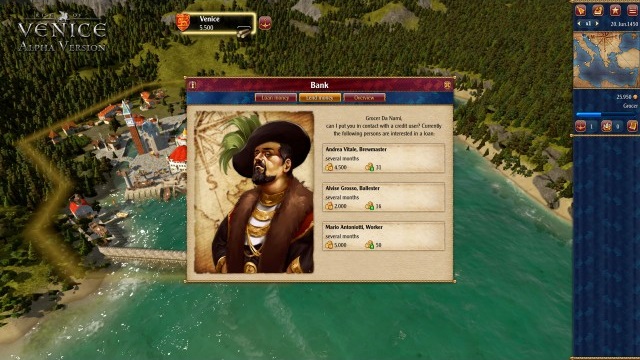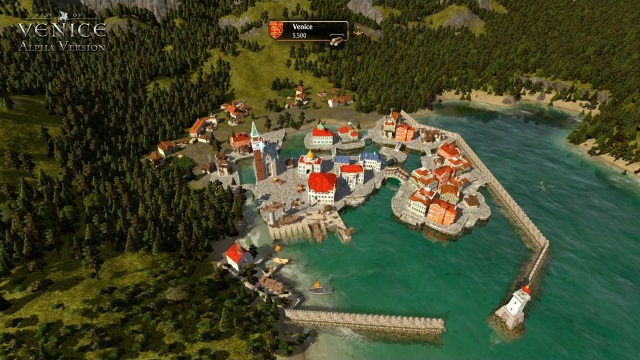The Merchant of Venice to be.
Time for transparency. When I reviewed the Brave New World expansion for Civilization V, it was actually my first time playing any title not only from the Civilization series, but also of the genre. Reviewers, even seasoned ones, must be open to video game experiences foreign to them, if not for their personal growth as a well-rounded gamer, then for an analysis that isn't from the usual, recommended hardcore perspective. Though Civilization V threw me into the deep end of diplomacy, strategeries, and a cloudy hexagonal map rife with resources, it was with time an eye-opener that still leads me today into week-long matches and fuels an appreciation for the genre and the titles like Rise of Venice within it.
Developed by Gaming Minds, owned by publisher Kalypso Media, its new IP Rise of Venice takes elements from Port Royale 3 and pits the player in a strategic trading simulation set in the Renaissance Era. The object, as a young man in a mercantile family, is to establish a flourishing trading empire spanning the Mediterranean Sea, while forming alliances with other political families, building warehouses and cargo ships, and removing threats from rival merchants as well as errant pirates through a real-time mini-game.
Trading itself is easy to learn but difficult to master. Every city on the map, designed by the developer's in-house engine for quick zooming both in and out, has various goods that can be produced and then sold to another city. Of course, the general rule is to construct mills in one city that can produce one particular good that another city cannot and cashing in the difference. It's simple supply and demand. But it can become as complex as the player wants, with either sophisticated, multi-city automated routes or manual routes where the player can control everything from the price of a good, to the quantity of the good sold, both with deliberate accuracy.
Rising through the ranks of Venetian society, however, isn't merely a matter of trading. To earn the next title, players must gain favor with the ten families who each has a vote on the council by completing family-specific missions or performing tasks that they desire in general, such as generating more trade activity in a certain city. Building reputation with one family, though, can work against another. For that, there are bribes and elements of sabotage, but players can lose favor simply by offering a bribe or by offering one that's too low.

An alternate solution is to marry into one of the families instead, gaining automatic favor with that family and having access to more family members. It might seem unwise to mix family with business, but here it's a necessity. Cousins, aunts, and uncles in various roles can influence cities in the player's favor and can even command vessels, granting bonuses to any transactions completed along their trade route. Anything that gives the player an edge against rival families or earns them points on the online leaderboard is worth taking.
Rise of Venice is slated for a PC release on September 27, 2013.







